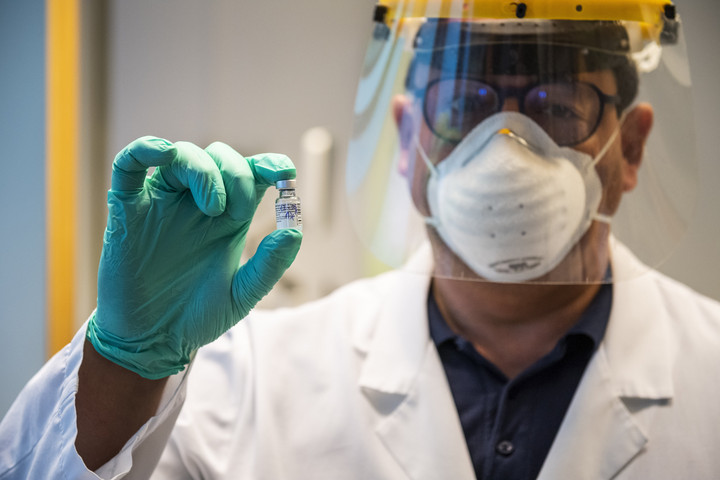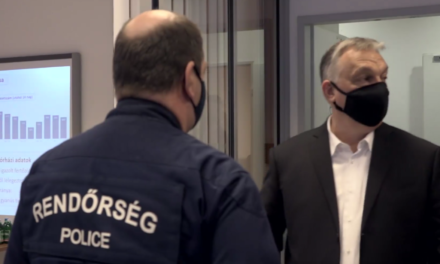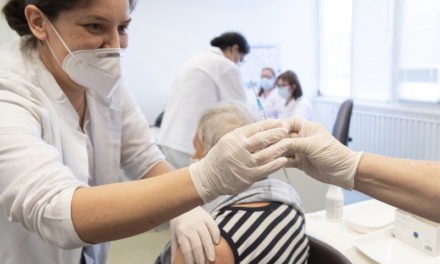88 percent of the repeated antibody tests were above the limit in the Semmelweis University (SE) laboratory test, said the rector of the institution.
According to Béla Merkely's information, based on SE's offer, a repeat test was performed on 1,195 people in whom other tests previously found no or insufficient antibodies. In a repeated examination conducted with the most modern, accurate, sensitive and long-standing laboratory test on the market, 88 percent were found to have a positive antibody level against the spike protein of the coronavirus, which was above the limit, he emphasized.
He explained: the positivity was 100 and 97 percent for those vaccinated with the Szputnyik and AstraZeneca vaccines, 97 and 94 percent for the Pfizer and Moderna vaccines, and 84 percent for Sinopharm. He added: at Sinopharm, for those who previously had a negative test, 93 percent of those who had previously tested negative, and 82 percent of those over 60 years of age, had a positive result of the repeated antibody test.
However, Béla Merkely pointed out that there is no point in determining the antibody level to demonstrate immunity. He said that the sensitivity of the tests of blood samples taken in different laboratories is very heterogeneous, and the US Food and Drug Administration (FDA) does not recommend this method either.
According to the specialist, the essence of vaccines is their clinical effectiveness, the extent to which they are able to protect against serious illness and hospitalization. All vaccines used in Hungary show good results in this, he said.
The rector drew attention to the fact that protection consists of several factors: in addition to antibody immunity, cellular immunity, the presence of memory cells, to which the immunity of the mucous membrane is added, which is why it is difficult to measure.
Speaking about the fourth wave of the epidemic, Béla Merkely highlighted that the approximately 3 million people who were not even vaccinated with the first dose of vaccine are at risk. There are relatively many of them even over the age of 60, he added.
He also touched on the possible third vaccination, which he believes may be important for chronic patients, such as those suffering from oncological or hematopoietic diseases, or those receiving immunosuppressive treatment, but there are no clinical trials for this yet, and no unified professional position has been formed.
He emphasized that the most important thing is to administer the first vaccinations, since where the vaccination rate is low, mutants of the virus can develop that can make the lives of people living in more developed countries miserable.
The rector said about the mixing of vaccines: the different mechanisms can widen the spectrum of protection. The combination of adenovirus and mRNA vaccines was mostly investigated, however, with adenovirus vaccines, the same third vaccination is not a solution, since the rapid immune response can also destroy the carrier vector, he added.
You can view the results of Semmelweis University in a table here!
In our opening picture: Béla Merkely, Rector of Semmelweis University with a vial of a vaccine against the coronavirus developed by Pfizer and BioNTech at the Heart and Vascular Clinic in Városmajor
Source magyarhirlap.hu. Image: MTI/Márton Mónus












